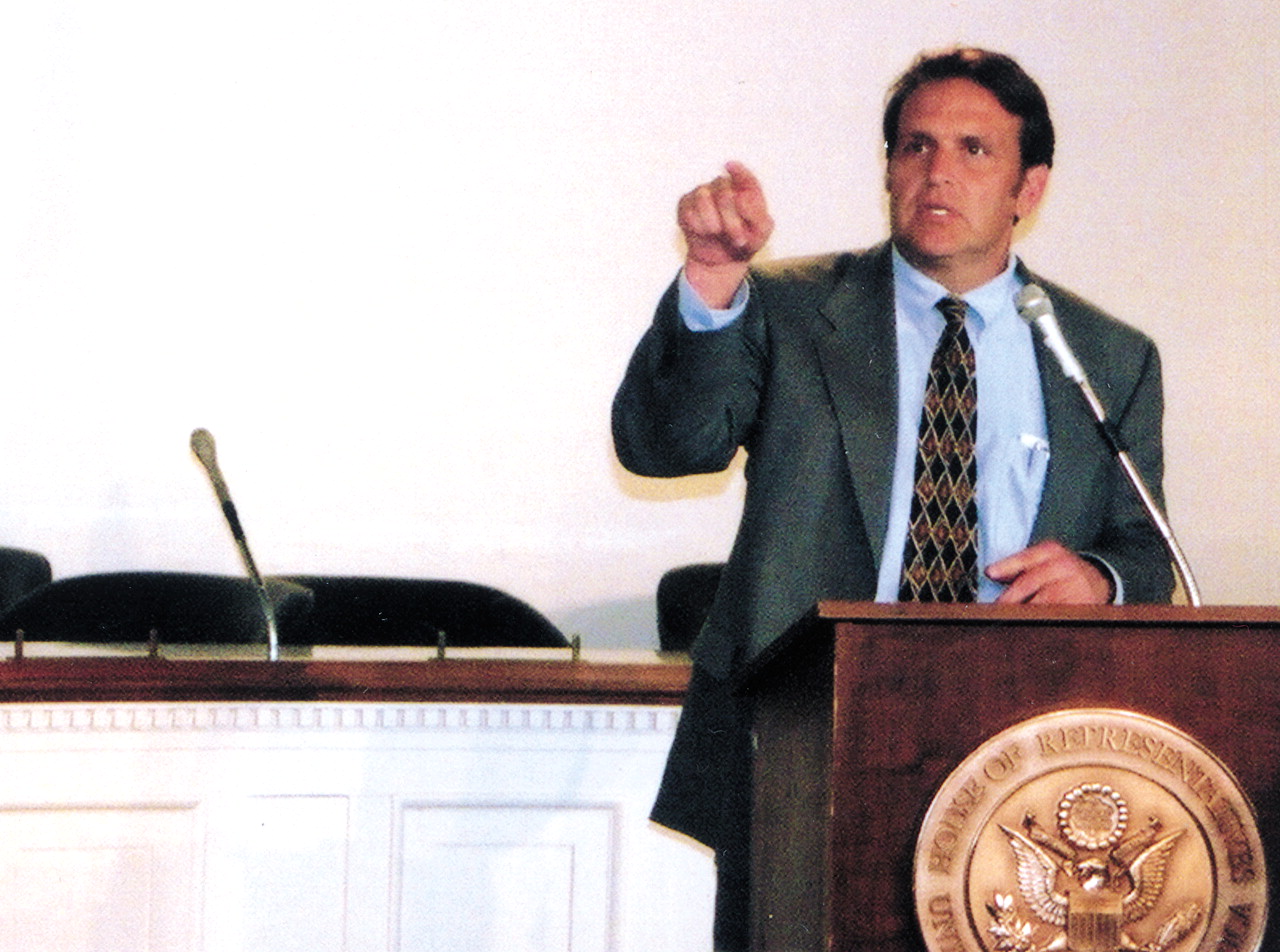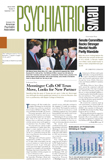Where do members of Congress and their aides and advisers go to learn about mental illness? Clearly, a source of useful information is the series of lunch sessions hosted by the House Working Group on Mental Illness.
The working group, cochaired by Reps. Marge Roukema (R-N.J.) and Peter DeFazio (D-Ore.), was established in the 1990s and focuses attention on mental illness treatment and research. The group played an important role in passing the 1996 mental health parity law.
The group has 17 members and has sponsored several lunch briefings with logistical support from APA.
This year’s series of three lunch briefings began in June (Psychiatric News, July 6) and ended in August.
They served up talks from leading psychiatric researchers, administrators of federal mental health agencies, and patient advocates.
The second briefing, which occurred in July, held the attention of congressional aides long after lunch was over. Psychiatrist Dennis Charney, M.D., who heads a federal anxiety and mood disorders program at the National Institute of Mental Health, sparked their interest when he looked at the group’s youthful faces and said they hadn’t reached the average age of onset for depression, which is 35. But, he added, 20 percent of them were likely to develop some form of depression in their lifetime.
Charney said depression is the most serious of medical disorders because of its high mortality rate from suicide and its chronic, debilitating nature.
Untreated depression also affects the functioning of other systems in the body, he noted. “It alters people’s immunity, which increases their risk of infectious diseases; reduces their metabolism of glucose, which increases their risk of diabetes; and affects the sympathetic nervous system, which increases the risk of cardiovascular disease,” said Charney.
The good news, he pointed out, is that researchers are looking at the genetic and environmental causes of depression.
“The sequencing of the human genome is helping researchers identify the genes that predispose people to depression. I expect that in the next five to 10 years, we will be able to identify those genes and tell patients what their risk is. We will be able to discuss what kind of preventive measures make sense in terms of the environment and new medications,” said Charney.
Neurochemicals
“We have discovered other neurochemicals involved in depression besides serotonin,” said Charney.
He mentioned that corticotrophin releasing hormone (CRH) is associated with symptoms of anxiety and depression. “We have discovered a receptor for CRH and know its chemical structure. We are developing new drugs known as CRH antagonists that represent a new class of antidepressants,” said Charney.
Scientists have also discovered a neurochemical, stresscopin, that can reduce anxiety and fear. Charney got a few laughs when he told members of Congress and congressional aides that they want a lot of this chemical in their brains.
“If we can figure out how to increase this peptide in the brain, we may be able to prevent anxiety and depressive disorders,” said Charney.
Best and Worst of Times
Steven Sharfstein, M.D., president and CEO of Sheppard-Pratt Health System in Baltimore, said psychiatrists are living in “the best of times” because of recent advances in brain research. He recalled prescribing lithium when it became available for patients with bipolar disorder and seeing the difference it made in their lives.
But, it is also the “worst of times” for psychiatrists, because of managed care restrictions on hospital stays and outpatient treatment, he emphasized.
“Although we have a parity law in Maryland, it allows for managed care utilization review. This means that I have to justify hospitalizing a suicidal patient for more than a few days and obtain new authorizations for every six sessions of outpatient treatment,” said Sharfstein.
“We need to enact a strong patient-protection bill so health plans and managed care companies know they will be held accountable for their actions,” said Sharfstein.
Jim McNulty, a person with mental illness and president of the National Alliance for the Mentally Ill, described his journey with bipolar disorder, a condition that went undiagnosed for 17 years. The illness had a devastating impact on his marriage, which ended in divorce, said McNulty.
After attempting suicide in 1988, he was hospitalized for six weeks, which he described as starting him on the road to recovery. However, upon discharge he was referred to a primary care physician because his health insurance didn’t cover outpatient treatment sessions with a psychiatrist, said McNulty.
It wasn’t until 1994, when a parity bill was enacted in Rhode Island, that McNulty said he was able to afford to see a psychiatrist on a regular basis.
“I became a patient advocate because I couldn’t believe how hard it was for people to get mental health services and how long it took,” said McNulty. He referred to a recent survey by the National Depressive and Manic-Depressive Association showing that it takes an average of 10 years from the time people experience their first episode of bipolar illness until they are accurately diagnosed. “That is too long,” said McNulty.
He urged members of Congress and the congressional aides to reach out to people they know with mental illness and tell them that treatment works.
Parity will be the focus of the August lunch briefing by the House Working Group on Mental Illness. House members will get to vote at some point on a comprehensive parity bill (HR 162) that Roukema introduced in January. ▪

